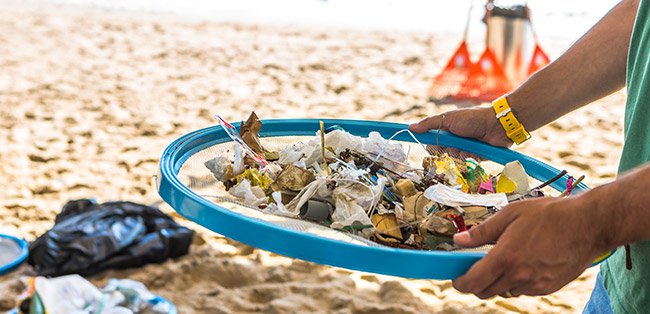One of the biggest environmental challenges for Pakistan is curbing the extensive use of plastics, particularly the single-use plastic bags. It is deeply rooted in our society- from carrying grocery, lining bins to being neatly folded in kitchen drawers for future use, plastic bags make their appearance everywhere in an average Pakistani household. Unfortunately, the massive prevalence of plastic bags is extremely detrimental for the environment and immediate actions are required to bring behavioural changes in our society.
Single-use plastic is one of the cheapest things in today’s world. It is widely used in packaging and carrying materials and for the most part, it comes free. While it remains exceptionally inexpensive, it is tremendously costly for the environment. It plays a key role in the degradation of the planet as it thrives for centuries and causes harms in numerous direct and indirect ways. Since it lacks the capacity to be absorbed back into the environment, it usually ends up either in landfills or the oceans, from where harmful gases and pollutants are eventually released into the air, soil and water, which endangers humans, animals and marine life.
According to a recent study by the University of Newcastle, Australia, an average person could be ingesting approximately 5 grams of plastics every week mainly through water, seafood, beverages and salt.
Another study conducted by the University of Georgia, University of California, Santa Barbara and Sea Education Association on plastics, suggests that globally, about 8.3 billion metric tons of plastic have been produced so far, of which, 6.3 billion accounts for plastic waste and about 79 per cent of it is accumulating in landfills or oceans. The study also estimated that if the present trends continue, there will be 250 million metric tons of plastics in oceans and approximately 12 billion metric tons in landfills by 2050.
Plastic production is expanding worldwide which poses another major concern- that is the growing carbon footprint. According to the World Economic Forum, if plastics are left unchecked, the greenhouse gas emissions from it will be nearly four times greater by mid-century.
Given the projections, plastics will be responsible for up to 13 per cent of the carbon budget. This plastic binge greatly threatens the attempts of meeting the Paris Agreement, which is a global commitment towards fighting climate change. In fact, at the current levels, greenhouse gas emissions from plastics lifecycle threaten the ability of the global community to keep global temperature rise below 1.5C below the pre-Industrial Revolution level.
The international community is debating ways of reducing greenhouse gas emissions, which is the major contributor to climate change. In the ongoing UN’s climate conference in Germany, major discussions have been on increasing ambitions around the reduction of carbon dioxide emissions.
During the conference, Sara Nyberg from PUSH Sweden, an environmental NGO talked about the emissions from plastic waste and suggested the role of youth in reducing the emissions. “As seen globally, youth can do a lot for climate action. In a developing country like Pakistan, youth can massively be involved in awareness raising and can work with the government for conducting advocacy campaigns.
However, this would remain ineffective if done in isolation. The effort of youth needs to be supplemented with laws and policies against plastic usage.” Jenifer Julius, from Nipashe Daily Newspaper, explained the recent ban imposed on plastic bags by the Tanzanian government and said, “Strict laws are in place now against plastic bag usage. Anyone caught using it is fined with TZS50,000 or is thrown in jail. As a result, there has been a massive behavioural change in society. People have now shifted to paper bags.”
Pakistan also needs to curb its plastics waste. Ms Zartaj Gul, Federal Minister of Ministry of Climate Change has recently announced her plans of making the capital city of Islamabad plastic-bag free by 14 August 2019. Efforts are being made to help this transition; cotton bags are being freely distributed in weekly markets across the city. However, banning plastic bag from one city would not be enough. The government needs to impose this ban nationwide and ensure its proper implementation. Along with the ban, the government also needs to revise its recycling strategies to fully supplement this ban.
There is also a huge need for educating the public on plastics and its negative impacts and for that, youth can play a significant role. The government is already on the right track and with some more consolidated efforts, Pakistan should be able to control plastic pollution.














